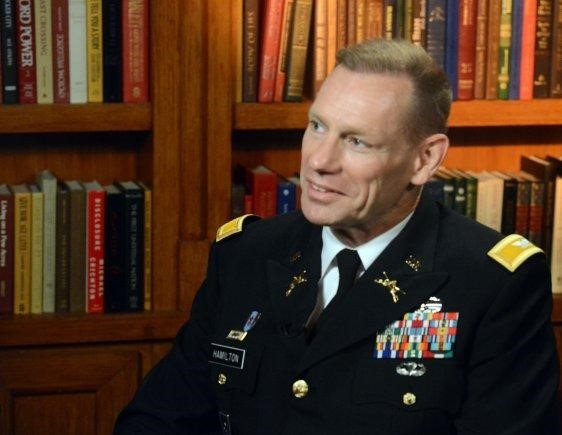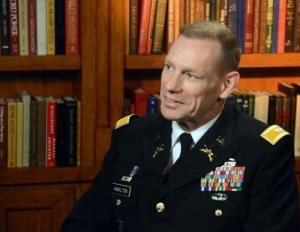Hamilton: Georgia’s Conflicts “Strategic Surprise” for the West
Col. Bob Hamilton, a professor at the U.S. Army War College, in an interview with the Voice of America’s Anna Kalandadze, called the Georgian conflicts a “strategic surprise” for the west.
“Russian intervention in Georgia in 2008 took the West by surprise in its rapidity and intensity” - emphasized Hamilton, who was there as chief of the Office of Defense Cooperation from 2006 to 2008.
He does not look at Ukraine today in isolation from what happened in Georgia in 2008, citing it is a classic example of Russian meddling in areas it believes to be within its own geopolitical sphere and areas it considers to be of strategic military importance.
“Had Western governments been paying more attention to the situation in Georgia, they might have anticipated the crisis and not been taken aback by it, a condition he termed "strategic surprise."
Assessing the overall situation, Hamilton underlines that a series of violent acts by the separatists and a response by Georgian forces resulted in all-out war in August 2008. “Russia sent troops into South Ossetia and Abkhazia, claiming Georgian atrocities against the local inhabitants. Today, both areas are de facto independent from Georgia's control”.
“One of the factors that most likely led to the crisis was Russia felt itself provoked by Kosovo's declaration of independence in early 2008 from Serbia. Serbia and Russia were close and the move sparked retaliatory action in Georgia, he says.
According to the former US military representative, one of Russia's goals was to make Georgia appear unattractive to the West as a NATO ally by pointing out that it has an unstable government and would be an unreliable partner. “Another point the Russians wanted to make, he said, was to demonstrate that Georgia is small and geographically close to Russia and therefore is indefensible, should forces from countries other than Russia try to bolster its security”.
Comparing Georgia with other cases, Hamilton assumes that Russia’s pattern of behavior has been evident in Ukraine, as well as in the Transnistria breakaway state of Moldova and the Nagorno-Karabakh conflict in Azerbaijan, he said.
Finally, Hamilton declined to predict Georgia’s future, saying “Georgia develops its "soft power" and is seen as attractive from a political, social and economic standpoint. Someday, maybe decades from now, those two breakaway provinces might rethink their decisions and agree to rejoin Georgia, perhaps in some sort of a confederation arrangement,” Hamilton said.
“Any future arrangement or agreement would, realistically, have to include Russia” – he concluded.
Does Hamilton’s hope about Georgia’s future give optimism to Georgia itself?
Interview by Anna Kalandadze, prepared for GT by Zviad Adzinbaia












